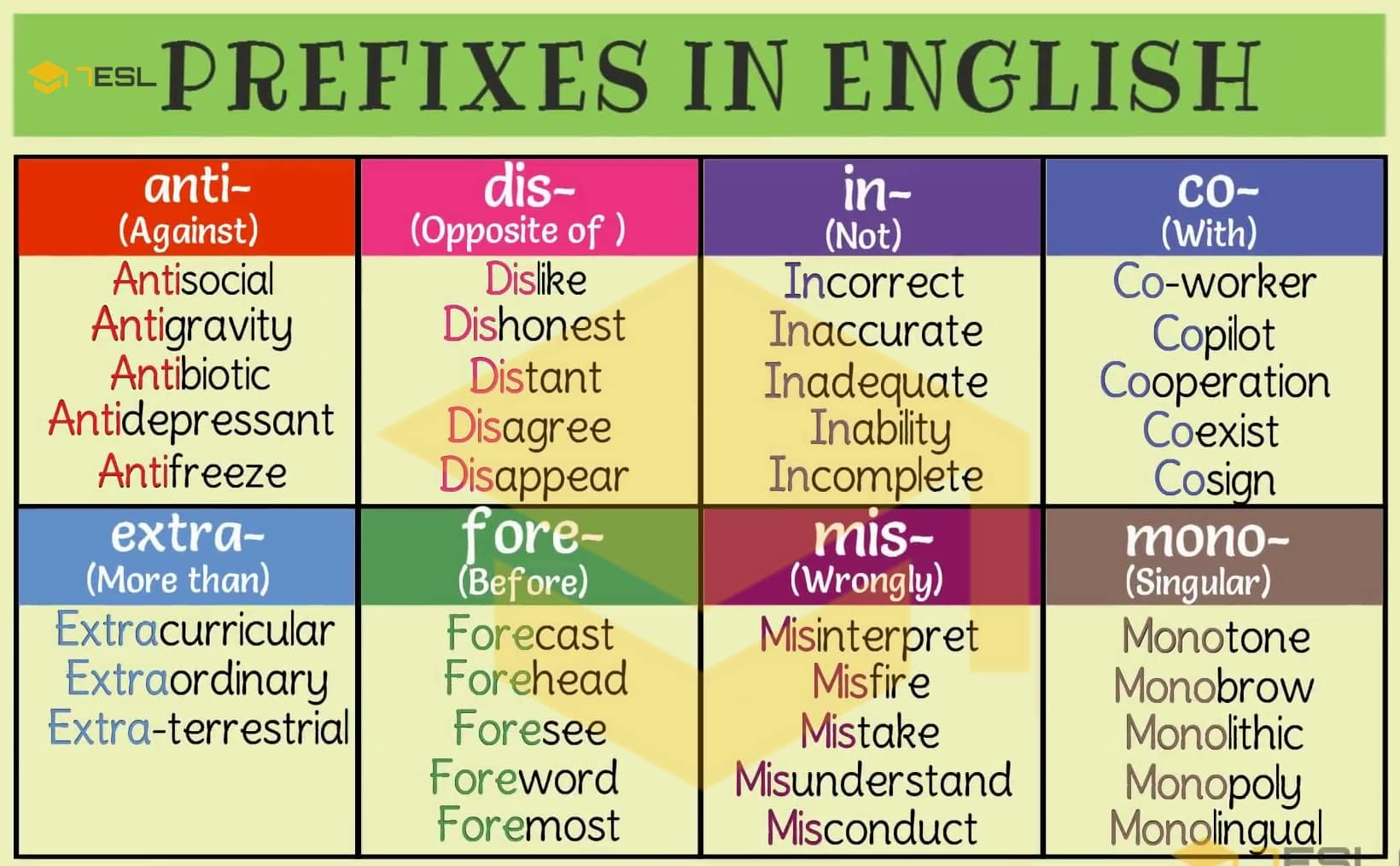Lets Learn Prefix Suffix With Meaning Examplesprefix Suffixonline English Grammar Classes

Prefix 35 Common Prefixes With Meaning And Useful Examples 7esl Ps009 my poor language prefixes intermediate. ps008 prefixes intermediate. ps007 noun suffixes intermediate. ps006 noun suffixes intermediate. ps005 adjective suffixes elementary. ps004 negative prefixes intermediate. prefixes and suffixes 1 intermediate. prefixes and suffixes 2 intermediate. prefixes and suffixes 3 intermediate. A prefix is a group of letters placed before the root of a word. for example, the word “unhappy” consists of the prefix “un ” [which means “not”] combined with the root (or stem) word “happy”; the word “unhappy” means “not happy.” a short list of prefixes:.

Suffix 30 Common Suffixes With Meaning Great Examples 7esl Teaching Suffixes Learn Prefixes, added to the beginning, often change the meaning of a word, while suffixes, added to the end, typically change the word’s form or part of speech. for example, consider the prefix “un ” added to “happy” to create “unhappy,” signifying not being happy. similarly, the suffix “ er” added to “teach” forms “teacher. Definition and examples. prefixes are one to three syllable affixes added to the beginning of a base word to slightly change its meaning. for example, adding the prefix im to the base word possible creates a new word, impossible, which means “not possible.”. prefixes are a regular part of english, and understanding them can greatly. Prefixes: meanings and use. the most commonly used prefixes are those that change an adjective with a positive meaning into one with a negative or opposing meaning, for example: uncomfortable. prefixes that change the word to a negative meaning include: in , ir , im and dis . examples formed using this type of prefix are: inactive, irregular. Prefixes english grammar today a reference to written and spoken english grammar and usage cambridge dictionary.

Comments are closed.